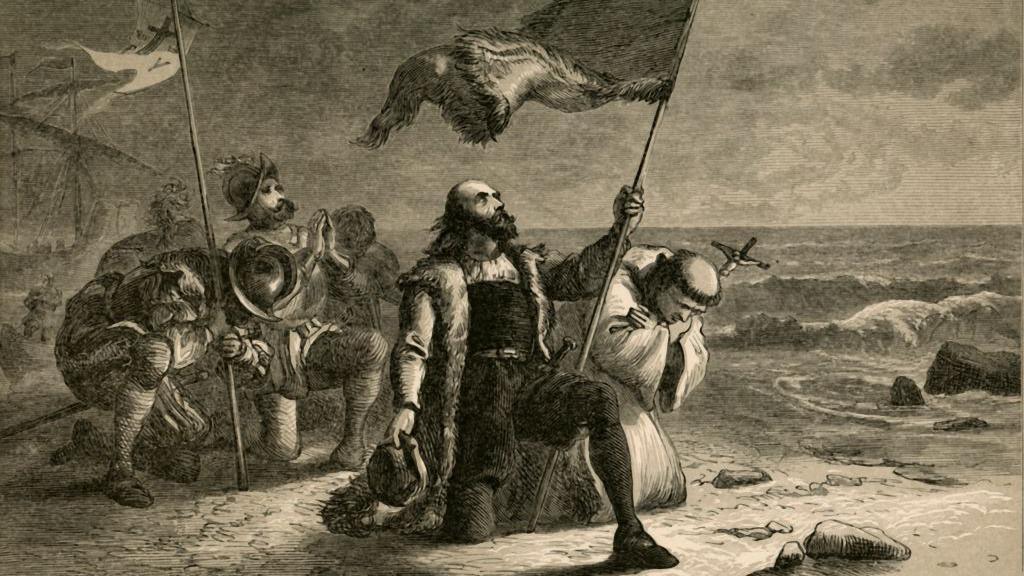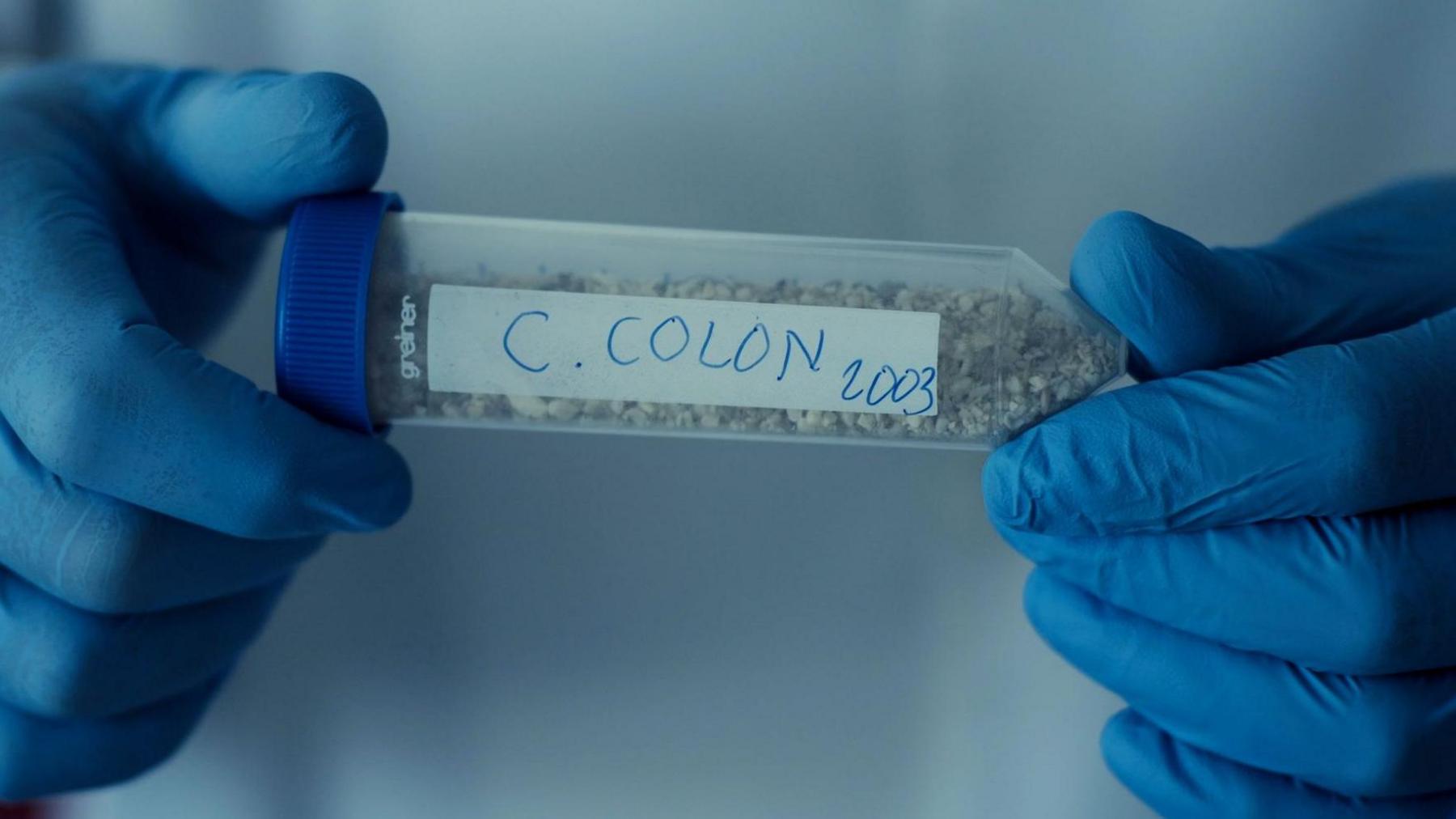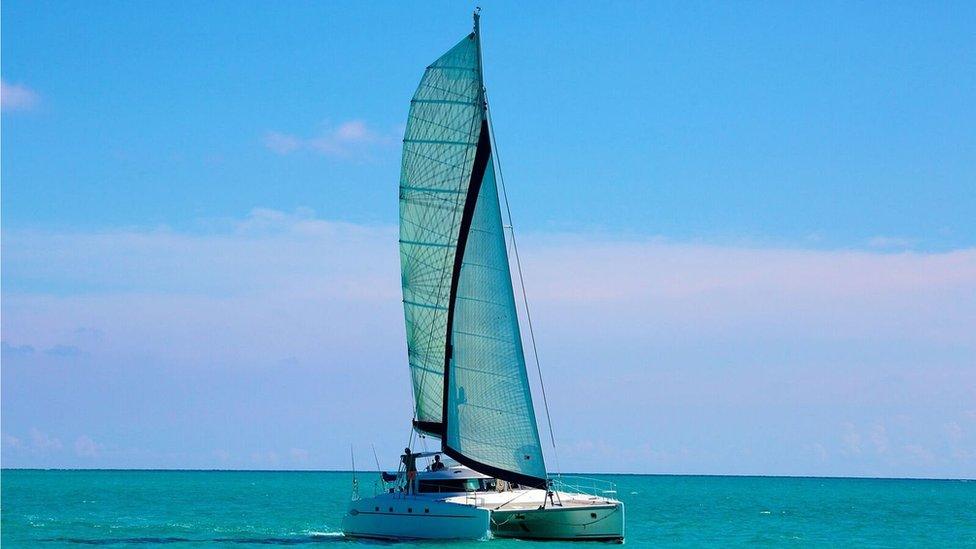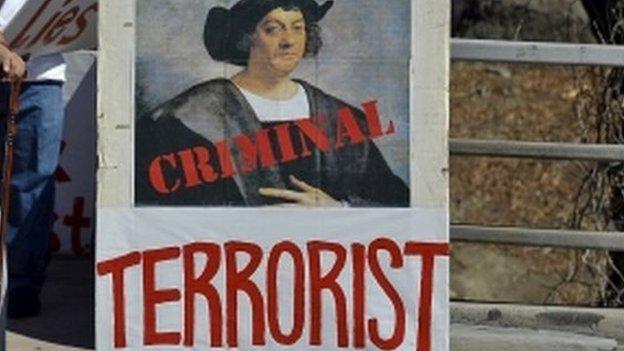Columbus probably Spanish and Jewish, study says

Christopher Columbus arrived in the Americas in 1492, beginning a period of European contact with the region
- Published
Famed explorer Christopher Columbus was likely Spanish and Jewish, according to a new genetic study conducted by Spanish scientists that aimed to shed light on a centuries-old mystery.
Scientists believe the explorer, whose expedition across the Atlantic in 1492 changed the course of world history, was probably born in western Europe, possibly in the city of Valencia.
They think he concealed his Jewish identity, or converted to Catholicism, to escape religious persecution.
The study of DNA contradicts the traditional theory, which many historians had questioned, that the explorer was an Italian from Genoa.
Columbus led an expedition backed by Spain's Catholic Monarchs seeking to establish a new route to Asia - but instead he reached the Caribbean.
His arrival there was the beginning of a period of European contact with the Americas, which would lead to conquest and settlement - and the deaths of many millions of indigenous people to diseases and war.
Countries have argued for years over the explorer's origin, with many claiming him as one of their own.
There have been an estimated 25 conflicting theories of his birthplace, including Poland, Great Britain, Greece, Portugal, Hungary and Scandinavia.
These new findings are based on more than two decades of research.
The study began in 2003, when José Antonio Lorente, professor of forensic medicine at Granada University, and the historian Marcial Castro, exhumed what were believed to be the remains of Columbus from Seville Cathedral.
Columbus died in the Spanish city of Valladolid in 1506 but wished to be buried on the Caribbean island of Hispaniola. His remains were taken there in 1542 but centuries later were transferred to Cuba before being finally laid to rest in Seville.
The researchers also took DNA samples from the tomb, and from the bones of Columbus' son, Hernando, and brother, Diego.
Since then scientists have compared that genetic information with that of historical figures and the explorer's relatives in order to try and solve the mystery.
The previously widely accepted theory was that Columbus was born in Genoa in 1451, to a family of wool weavers.
But they now believe he lived in Spain - likely in Valencia - and was Jewish. They think he hid his background to avoid persecution.
Around 300,000 practising Jews lived in Spain, before they were ordered to either convert to Catholicism or leave the country in 1492, the year Columbus landed in the Americas.
Announcing the study's results on the television documentary Columbus DNA: His True Origin, Professor Lorente said they were "almost absolutely reliable".
The programme - which aired on Spain's national broadcaster RTVE on Saturday night - coincided with Spain's National Day.
The day celebrates the explorer's arrival in the Americas.
Clarification 4 Nov 2024: A line in this story has been amended to make clear the forced conversion and expulsion in 1492 involved only Jews and not Muslims, who suffered the choice of forced conversion and expulsion several years later.
- Published12 October 2024

- Published7 August 2016

- Published12 October 2015
